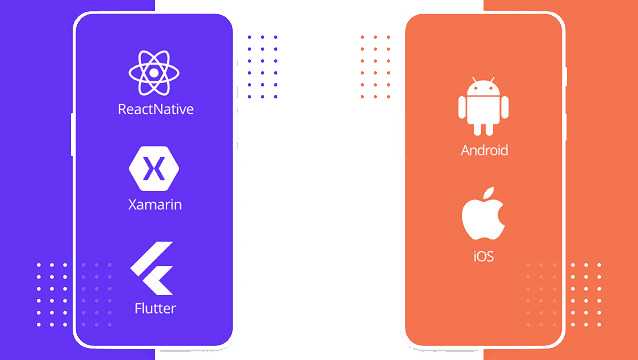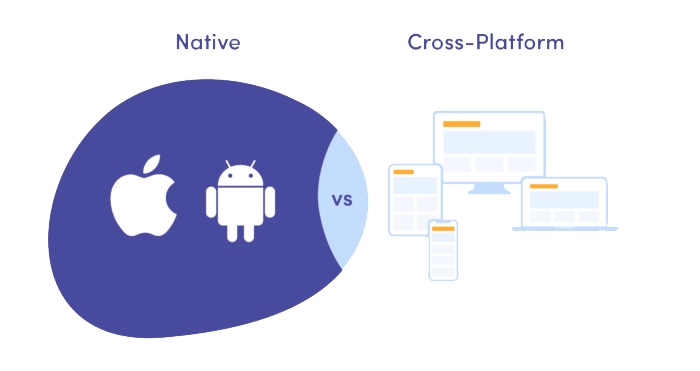
Native vs Cross-Platform App Development
Native vs Cross-Platform App Development: Selecting between native and cross-platform development is one of the most crucial decisions in app development. Every technique has advantages and disadvantages, and the optimal choice will primarily depend on the specific requirements of the project. Let’s look at the key considerations to make while deciding between creating native and cross-platform applications.
To produce native programs for certain operating systems, like iOS or Android, programmers utilize platform-specific languages (Java or Kotlin for Android, Swift or Objective-C for iOS). This enables the device’s features to perform as smoothly and optimally as feasible.


Native apps provide a better user experience since they are built in accordance with the platform’s standards and conventions. More user satisfaction and engagement are frequently the outcome of this.
By employing platform-specific APIs and functionalities, native apps are able to completely exploit all of the device’s features, including the GPS, camera, and push notifications, without any limitations.


Cross-platform programming allows for the creation of a single codebase that works with several systems. There may be significant time and cost savings because developers won’t have to write custom code for each platform.
Maintaining a single codebase for a cross-platform application is typically less complicated than managing several codebases for different platforms.


Cross-platform apps are a popular option for startups and businesses trying to increase their market reach since they can run on many operating systems and potentially reach a larger audience.
Consider the specific needs of the project, including the intended audience, features that are required, and performance standards. If the product heavily relies on platform-specific features and performance, native development can be the better choice.


Examine the project’s schedule and resources that are available. Cross-platform development may save costs and save time, especially for simpler, feature-rich apps.
Consider the long-term goals of the app. If future expansion depends on scalability and performance optimization, native development could offer more flexibility and growth opportunities.


In conclusion, deciding between native and cross-platform app development should be based on a careful analysis of the project’s unique requirements, budget, timeline, and long-term vision. Selecting the most effective strategy can have a significant impact on the app’s success, as both provide benefits. It’s crucial to weigh the benefits and drawbacks of each approach and match them to the specific needs of the project in order to make an informed decision.
